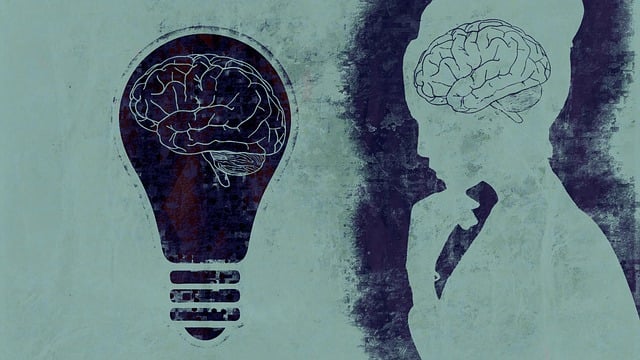Mental health is a complex spectrum, yet media often reduces it to stereotypes, especially regarding women's issues. This perpetuates stigma and hinders access to care. To change perceptions, media must portray mental illness accurately and empathetically, including diverse experiences in Superior Womens Issues Therapy. Collaboration between filmmakers, healthcare providers, and experts can create nuanced characters and stories that foster understanding and early intervention. Workshops and training ensure responsible media representation, reducing stigma and promoting a culture of mental health advocacy. Specialized Superior Women's Issues Therapy centers play a vital role, offering tailored programs to manage conditions effectively through evidence-based practices, supportive environments, and integrated techniques for improved outcomes.
Mental illness representation in media is a complex challenge that significantly influences public perception. This article delves into understanding mental health issues and their portrayal, examining the impact of stereotypes and misinformation. It highlights the importance of accurate and empathetic coverage of women’s mental health, suggesting strategies to enhance media accountability. Additionally, it explores therapeutic interventions and support systems, emphasizing superior women’s issues therapy as a crucial component in addressing this complex challenge.
- Understanding Mental Illness and Its Portrayal in Media
- The Impact of Stereotypes and Misinformation on Public Perception
- Promoting Accurate and Empathic Representation of Women's Mental Health Issues
- Strategies for Improving Media Accountability and Responsibility
- Therapeutic Interventions and Support Systems for Addressing the Challenge
Understanding Mental Illness and Its Portrayal in Media

Mental illness is a complex spectrum encompassing various conditions, from depression and anxiety to more severe disorders like bipolar disorder and schizophrenia. It’s essential to understand that mental health isn’t simply the absence of illness but a state of well-being where individuals realise their potential, can cope with normal life stresses, and are able to work productively and fruitfully. Unfortunately, media often perpetuates stereotypes about mental illness, contributing to stigma and misinformed public perceptions.
Media representation plays a powerful role in shaping societal attitudes towards women’s issues, including mental health. Superior womens issues therapy often go unnoticed or misrepresented, leading to a lack of understanding and support for those struggling. Public awareness campaigns development that focus on normalising conversations around mental health, promoting empathy, and encouraging early intervention are crucial steps towards challenging these negative portrayals. By embracing mind over matter principles, media can move away from sensationalised narratives and instead provide accurate, nuanced depictions that reflect the diverse experiences of individuals living with mental illness.
The Impact of Stereotypes and Misinformation on Public Perception

The media plays a significant role in shaping public perception and understanding of mental illness. Stereotypes and misinformation often prevalent in various forms of media can lead to harmful consequences, perpetuating negative views and contributing to the stigma surrounding mental health issues. When media representations depict mental illness through one-dimensional lenses, it oversimplifies complex conditions, leading to misconceptions among viewers. For instance, portraying individuals with depression as solely sad or those with anxiety as overly fearful reinforces outdated stereotypes that fail to capture the diverse experiences of people living with these conditions.
These negative portrayals can hinder access to care and support for those struggling with their mental health. The public’s perception is a powerful factor in determining how society responds to and supports individuals with superior women’s issues therapy needs. Accurate representation in media, therefore, becomes a crucial tool in promoting understanding, empathy, and early intervention. By challenging stereotypes through thoughtful storytelling and encouraging open conversations about mental wellness, the media can contribute to better risk management planning for mental health professionals and even inspire the development of effective mental wellness coaching programs that focus on self-esteem improvement.
Promoting Accurate and Empathic Representation of Women's Mental Health Issues

In the media landscape, the representation of women’s mental health issues has historically been inadequate, often perpetuating stereotypes and misconceptions. It is crucial to promote accurate and empathetic portrayals that reflect the diverse experiences of women grappling with various mental health challenges. By ensuring superior women’s issues therapy in popular media, we can foster a more nuanced understanding among audiences. This shift requires collaboration between filmmakers, writers, and healthcare providers who can work together to develop complex, three-dimensional characters that showcase the resilience and strengths often associated with recovery.
Cultural competency training for healthcare providers plays a pivotal role in this endeavor. Equipping professionals with the knowledge and skills to navigate the intricate interplay of mental health and gender allows for more effective support and representation. Additionally, incorporating mind over matter principles in media narratives can empower viewers by showcasing coping mechanisms and positive outcomes. Such strategies contribute to a richer tapestry of storytelling, challenging outdated tropes and fostering a more inclusive dialogue about women’s mental well-being.
Strategies for Improving Media Accountability and Responsibility

The media plays a significant role in shaping public perception, and its influence on mental health discussions is profound. To foster positive change, media outlets must embrace accountability and responsibility when depicting mental illness. This involves ensuring accurate and sensitive representation, promoting diverse narratives, and challenging stereotypes. By doing so, they can contribute to Mental Illness Stigma Reduction Efforts and encourage the public to approach these issues with empathy.
One strategy is to involve experts, such as therapists specializing in women’s issues, in the creative process. Their insights can ensure that portrayals are not only realistic but also promote beneficial messages. Additionally, organizing initiatives like Confidence Boosting and Stress Management Workshops within media organizations can empower employees to handle these topics with care. Such efforts collectively drive a culture of responsibility, ultimately reflecting a commitment to broader mental health advocacy.
Therapeutic Interventions and Support Systems for Addressing the Challenge

Addressing mental illness representation in media requires a multi-faceted approach, with therapeutic interventions and robust support systems playing a pivotal role. Superior women’s issues therapy centers can offer specialized programs tailored to the unique needs of female individuals struggling with mental health challenges. These therapies often incorporate evidence-based practices such as cognitive-behavioral therapy (CBT), mindfulness techniques, and group therapy sessions, which have proven effective in managing various conditions like anxiety, depression, and trauma.
By fostering a supportive environment, these therapy centers can help clients develop coping strategies, enhance self-esteem, and build resilience. Additionally, integrating risk assessment tools for mental health professionals ensures early identification of at-risk individuals. Conflict resolution techniques and stress reduction methods are also integral to managing symptoms and promoting overall well-being. Such comprehensive support networks empower individuals to navigate their mental health journeys with increased confidence and improved outcomes.
In conclusion, addressing mental illness representation in media requires a multi-faceted approach. By fostering accurate and empathetic portrayals, especially focusing on women’s unique mental health challenges, we can challenge stereotypes and misinformation. Enhancing media accountability through strategic interventions and support systems is crucial for promoting understanding and reducing stigma. Ultimately, prioritizing superior women’s issues therapy and access to resources ensures a more inclusive and supportive societal landscape for all individuals struggling with mental health concerns.














